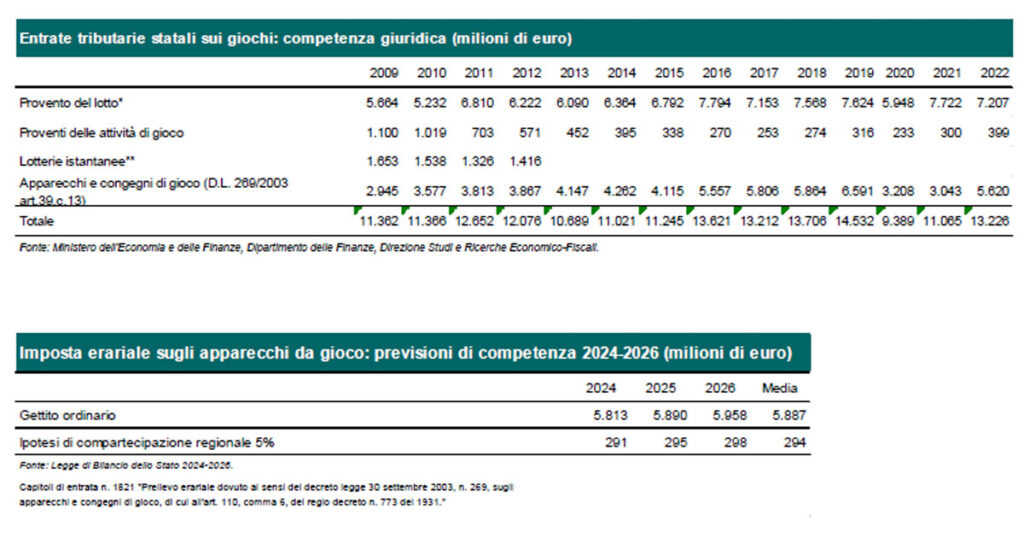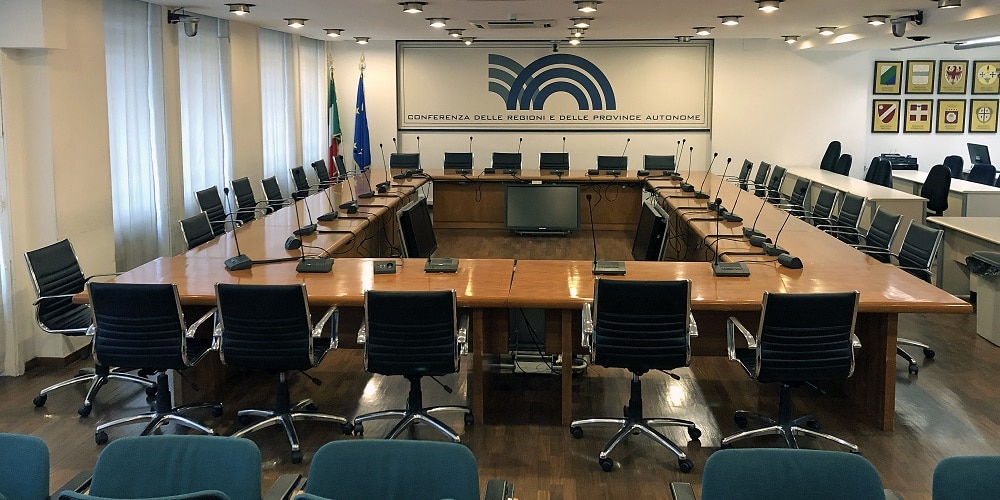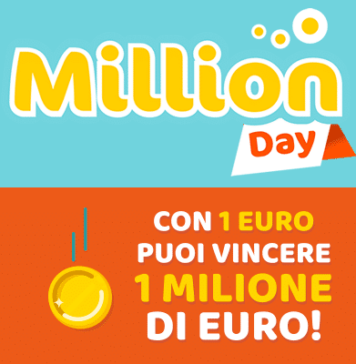The Conference of Regions and Autonomous Provinces considers the draft legislative decree to be strategic due to the absolutely significant dimensions that the gambling phenomenon assumes in Italy.
Some facts
According to data provided by the Monopolies Agency (ADM) for the year 2022, the overall collection from gambling was 136 billion euros, with an increase of 292% from 2006 to 2022.
With reference to the physical network alone, in 2022 gaming revenue on the national territory was 63 billion euros. The trend for gaming played in physical locations remained constant from 2012 to 2019, before decreasing drastically in the following two years.
Gaming revenue on the electronic network stood at 2022 billion euros in 73, with an increase of 373% compared to 2012. Revenue on the physical network was higher than that on the electronic network until 2020, the year of mobility restrictions and gambling in physical locations due to the Covid-19 pandemic, when the trend reverses and, for the first time, revenue from online gaming exceeds that from physical gaming.
Comparing the ADM data to the population resident in Italy according to ISTAT 2022 data, as regards gaming on the physical network, the per capita collection amounts to €1.069; for online gaming, the per capita collection rises to €1.239.
Regarding the spread of gambling, in Italy the most accredited data is based on the IPSAD® (Italian Population Survey on Alcohol and other Drugs) and ESPAD® (European School Survey Project on Alcohol and other Drugs) sample surveys and on the HBSC study (Health Behavior in School-aged Children – Health-related behaviors in school-aged children).
From the IPSAD® sample study, conducted in 2022, the number of people between 30 and 18 years old in Italy who have gambled at least once in their lives is estimated at almost 84 million (62%), 20 and a half million they did so during 2022 (43%) and 10 million reported having played in the last 30 days (21%).
“Onsite” gaming, i.e. gaming practiced by going to physical locations (betting shops, betting shops, newsstands, bars, service stations), is still more widely practiced with percentages of 42% of people, while “online” gaming, i.e., practiced via Internet use, from 7,3% during 2022. "Online" gaming is mostly practiced by younger people, who have used it mainly for sports betting.
Level of risk of problems associated with gambling patterns
Through the Problem Gambling Severity Index (PGSI) screening test, adapted and validated for Italy, it is possible to estimate the level of risk of problems associated with gambling patterns. Overall, 13% (over 2 and a half million people) of players present potentially risky gaming characteristics: these are players who, for example, have gambled greater sums of money than they could afford to lose, who have taken borrowed money or sold something to make money for gambling or who felt guilty about the way they gambled or about the consequences of their gambling.
As far as younger people are concerned, adolescence is characterized as that period of development where the probability of experimenting and adopting behaviors that can have consequences on health increases, such as the use of substances (tobacco, alcohol, cannabis) and gambling. 'I gamble. Over the past few years, the prevalence of gambling among adolescents has been recognized as an important public health issue. The ESPAD® sample study conducted in 2022 finds that 57% of students between 15 and 19 years old, equal to almost 1 million 500 thousand young people, say they have gambled in their life and 51% (1 million 300 thousand young people) during the year. Both values are the highest ever recorded since the first year of survey.
In 2022, almost 200 thousand students gambled online (8,1%), especially boys. The games most played online are football pools, totogol and sports betting (47%), followed by other virtual casino games, such as roulette and dice (28%), virtual betting (27%) and slot machines/videolottery (25%). The majority of online players play at their home (60%), 44% at friends' houses, 25% at school, 21% in closed public places, 19% in open public places such as squares and parks and 6,4% on means of transport. The most used tool for playing online is the smartphone, followed by computers, tablets, consoles and television. 60% of players use a personal account, 30% that of a friend or an adult acquaintance, 13% that of a parent and 6,7% that of adult brothers or sisters.
The South Oaks Gambling Screen, Revised for Adolescents (SOGS-RA30) screening test allows the observation of different gambling patterns, differentiating student gamblers into “non-at-risk”, “at-risk” and “problem” gamblers. Approximately 67 thousand students have a gaming profile that can be defined as "problematic" and almost 130 thousand "at risk". These are very young people who borrow money or steal something to have the money to play, are absent from school, have difficulty stopping playing and/or have arguments with friends and relatives because of gambling.
The new "frontier" of online gambling associated with "gaming"
The theme of online gambling is associated with that of gaming; in 2019, in fact, the WHO defined a new risk profile in reference to the issue of minors: gaming addiction or gaming disorder. In essence, a convergence is taking place between gambling, i.e. technological gambling, and gaming, which is interactive gaming on the cloud, to the point of spreading a real pathology. This is because in gaming, which is authorized for minors because you don't win money, the money is used to continue playing by purchasing boxes whose contents you don't know. The mechanism of stimulus, reinforcement and reaction is therefore absolutely similar to that of gambling.
On a health level, there is now ample evidence on the possibility that internet gaming could evolve into a real addiction. Many young people use video games as a pastime or hobby, however, when the time spent playing becomes excessive, gaming can be dangerous, negatively affecting the boy or girl's functioning, social relationships or academic performance. According to the screening test validated by Holstein, almost 400 thousand students (16%) present a "at risk" gambling profile, with percentages more than triple among boys compared to girls (M=24%; F=7,2% ).
The Conference hopes that the new legislative decree integrates the current regulations in terms of maintenance, overcoming or adaptation, with simplifications and transparency, as well as in compliance with the full protection of the most vulnerable subjects and the prevention of gambling and gambling disorders. underage gaming.
In light of these considerations, the Regions and autonomous Provinces are called to express their agreement in the Unified Conference on the draft legislative decrees pursuant to paragraph 2, of article 1, of law 111/2023, also with reference to the financial effects on the budgets of territorial bodies or on regional competences.
They recognize the importance of having also submitted for examination by the Conference this draft legislative decree which defines the "primary source regulatory framework for the regulation of public games admitted in Italy" in particular, those relating to remote gaming but above all which anticipates (art.1, c.2) that “The provisions relating to public games admitted in Italy collected via physical network are contained in a subsequent legislative decree issued after the definition of a specific programmatic agreement in this regard between the State, Regions and local authorities. ”
On the other hand, it is highlighted that:
- b) the law, including this decree [which] constitutes the primary national regulatory framework, assuming the character of the fundamental law of the matter (art.5, c.1, letter b)
- “3. In implementation of the principle of stability of the rules of the concession ... the obligations and rights of the concessionaire, including any fee requested by the State and the tax regime of gaming activities, are not modified for the period of validity and effectiveness of the concession." (art.5, c.3).
At this point, it is a question of valorising the following points:
Art.2, c.1, letter. g)
g) 'responsible gaming', the set of measures aimed at reducing the spread of excessive or problematic gaming behaviour, developing in the player the ability to play in a balanced, conscious and controlled way;
Art. 14 (Protection of the player's health), c. 1: “The primary objective of the regulation of public games admitted in Italy is to pursue full and reliable protection of the player's health through suitable measures to prevent any type of gaming that may generate pathological behavioral disorders or forms of gambling addiction.
c. 3: the establishment of "a permanent council for public games admitted in Italy with the aim of monitoring the progress of gaming activities, including illicit and unauthorized ones, and their effects on the health of players" with members designated by local authorities ;
Art. 15 (Measures for the protection and protection of the player): the criteria to safeguard and protect the player by preventing and combating pathological gambling, in the organizational forms of the concessionaire and the technical, technological and IT tools.
These issues are of specific relevance for the regional competences also referred to in article 3, in letters c); d); L):
c) development of safe gaming, aimed at ensuring the protection of the player, especially if belonging to vulnerable groups, both from the point of view of health and from that of public order and safety with respect to criminal phenomena;
d) promotion of responsible gaming, aimed at avoiding anomalous or distorted forms of gaming or in any case likely to generate pathological dependence in the player;
l) use of public gaming advertising functional to the dissemination of safe and responsible gaming, in any case consistent with the need to protect the most vulnerable subjects.
For this draft legislative decree, there are no financial impacts on the budgets of the Regions and autonomous Provinces.
The Conference therefore expresses the agreement, with the observations reported below and requests the establishment of a working table aimed at sharing the contents of the draft legislative decree relating to public games admitted through the physical network to be issued soon.
Remarks:
1) In article 2 it is deemed appropriate to eliminate the terms "responsible gaming" and "safe gaming", not recognized by the scientific community, and that the term "gambling addiction", also contested in the scientific field, be replaced with "gambling 'pathological gambling' or 'gambling disorder';
2) in article 2, paragraph 1, point r) relating to the "refill sales point", chosen and contracted directly by the concessionaire, constitutes cases potentially in conflict with many regional regulations on the matter, in particular with the opening, recharging and closing the gaming account. For example: Gaming point operators are prohibited from giving credit to gamblers. Any form of facilitation, commercial promotion and loyalty of gambling is prohibited.
You are also invited to evaluate the contradictory nature of a top-up point of sale which carries out opening, top-up and closing of the gaming account excluding the movement of the sums;
3) in article 3 it is asked to evaluate the maintenance of the advertising ban (which recently led to important results with high sanctions for the META company, owner of the main social channels), with the elimination of letter l of the first paragraph;
4) in article 3, paragraph 1, it is proposed to eliminate the references to 'safe gaming' and 'responsible gaming';
5) in article 4, we invite you to evaluate the opportunity to replace the wording "protection" with "protection" of health in the second paragraph in a manner corresponding to the constitutional provisions (art. 32) and the principles deriving from it;
6) in article 5, the following is observed: despite the absence of specific competences regarding the concession system, in general what has already been observed in the previous article is reported: You are invited to carefully evaluate compliance with the principle of free competition and specifically the general prohibition of agreements restricting competition (Article 101 TFEU). The Treaty on the Functioning of the European Union (TFEU) aims to prevent restrictions and distortions of competition, such as abuses of dominant positions, anti-competitive agreements, as well as mergers and acquisitions, where they restrict competition. State aid that causes distortions of competition is also prohibited (Source: https://www.europarl.europa.eu/factsheets/it/sheet/82/politica-della-concorrenza Thematic notes on the European Union);
7) in article 6, c.5: The Customs and Monopolies Agency issues the concession following the outcome of a public tender and subject to compliance with the requirements/conditions, to be provided for in the tender notice, including the "i ) commitment to adopt actions and measures to be implemented to combat pathological gambling previously subjected to evaluation by the Agency;"
The involvement of the Regions and autonomous Provinces in defining the general lines of the measures to be implemented to combat pathological gambling is considered strategic;
8) in article 12, you are invited to carefully evaluate the contents of the report concerning "The Fund for pathological gambling" referred to in Resolution 30 December 2021, n.23/2021/G of the Court of Auditors – Central control section on the management of State Administrations. See in particular Chapter IV of the report itself (attached).
Please refer to what has already been explained with reference to health protection. The collection and processing of data is of fundamental importance, but this must also pursue the prevention of Gambling Disorder. For the purposes of health protection, the diffusion and development of the offer of public games should be limited and not strengthened;
9) in article 13 (Top-up sales points), the establishment of a register is envisaged for the registration of "the owners of resales, ordinary or special, of monopoly products authorized to collect public games, as well as the subjects who carry out activities of refill sales points holding authorization pursuant to articles 86 or 88 of the TULPS, authorized, ...".
It would be appropriate for the Regions and autonomous Provinces to be able to access at least the indications of the locations of these top-up sales points as "place of the physical gaming network". Knowledge of the location is also necessary information for the definition of the distribution and territorial concentration criteria of the physical gaming networks and for the measures to combat pathological gaming in order to guarantee the best levels of safety for the protection of health. Therefore, consider an integration of the article.
Furthermore, the following is noted: the recognition of the activity of Top-up Sales Points with a national register extends the possibilities of offer and therefore the audience of potential players. This is in stark contrast to the Gambling Disorder prevention initiatives and activities implemented in the area.
We reiterate what has been observed with regard to article 2, namely:
The "top-up sales point", chosen and contracted directly by the concessionaire, constitutes cases potentially in conflict with many regional regulations on the matter, in particular with the opening, top-up and closing of the gaming account. For example: Gaming point operators are prohibited from giving credit to gamblers. Any form of facilitation, commercial promotion and loyalty of gambling is prohibited (Veneto Region - Regional Law 10 September 2019, n. 38, art. 9, second paragraph).
You are also invited to evaluate the contradictory nature of a top-up point of sale which carries out opening, top-up and closing of the gaming account excluding the movement of the sums;
10) in article 14 it is asked to consider expanding the Title to the entire field of "Health promotion and protection", inserting indications for the implementation of interventions for the promotion and protection of public health, aimed at prevention and facilitation early access to care.
We ask for the maintenance of the role and exclusive competences in health matters of the Observatory for combating the spread of gambling and the phenomenon of serious addiction established at the Ministry of Health;
11) in article 15 it is proposed that the criteria and indications for the tools and measures to be implemented for the purposes of safeguarding and protecting the player and combating pathological gambling are defined in detail with the involvement of the designated institutions to health protection (specifically including the Regions) both in the preventive guidance phase and in the subsequent monitoring phase. It is proposed to enhance, for these purposes, the support of the Observatory mentioned above;
12) we invite you to carefully evaluate the opportunity to include the exclusion of liability referred to in article 16, first paragraph. We also invite you to evaluate the opportunity of a rule, such as that of Article 20, first paragraph, which allows, in relation to individual remote games, variations in the return of winnings and stakes. This provision may in fact counteract the declared protection of the player. Finally, we ask you to evaluate the appropriateness of the following provision: "the measures adopted pursuant to this paragraph do not entail fiscal responsibility as regards their financial effects";
13) in article 23 it is proposed that a complete information framework be provided to Parliament, including data regarding the impact on health (epidemiological data) and the recognition of the actions implemented in the field of prevention and treatment and rehabilitation of the disorder from gambling;
14) article 24, paragraph 1, la), refers the identification of the provisions of a primary, secondary and general administrative regulatory nature to a subsequent legislative decree.
This aspect of opacity, in consideration of the very short time available for the examination of the measure, together with the fragmentation of the current regulation in the process of being replaced - not even referred to in the accompanying reports - proves to be an obstacle to the possibility of fully understanding and evaluating, in the immediacy required, the implications of the measure and its impact on the revision of the current regulations, whether in terms of maintenance, overcoming or adaptation.
In essence, the real and effective scope of the provision will be knowable only ex post thanks to the subsequent provision which is entrusted with the identification of the rules to be considered repealed due to incompatibility, in the face, it is also noted and further, of the opposite choice to strengthen as much as possible, in terms of sources, the value of the delegated decree, with the qualification that is made of it whose provisions may be modified or repealed only explicitly (see art. 1, paragraph 1; art. 5, c. 1 and 2);
15) in article 25 the following is observed: with regard to the financial effects of the measure, which the technical report defines as important and immediate or with potential financial impact in the medium and long term, depending on the reference provisions, for the revenues that it generates will derive from the treasury, we highlight the need for resources for the strengthening of prevention, treatment and rehabilitation measures induced by the expansion of the offer of gambling games in the online sector.
The revenue guaranteed to the treasury should be commensurate with the health and social costs that fall on the community.
Therefore, we are asked to evaluate the increase in the Fund for pathological gambling (GAP).
The draft legislative decree that will be issued in relation to "public gaming admitted in Italy collected via physical network" will be verified after evaluating the contents of the document concerning the characteristics of the public gaming collection points approved with Intesa no. 103/CU of 7 September 2017.
Given the role and responsibilities of the Regions and autonomous Provinces on the subject of the points of the physical gaming networks and on the subject of Health Protection, it is anticipated, for the purposes of a preventive evaluation of the issue, that the possibility of considering a regional sharing both in the point concession fee for the physical gaming networks and in the gaming revenue net of winnings paid and premiums.
Regulatory proposal on the draft legislative decree containing "Provisions regarding the reorganization of the gaming sector, starting from remote gaming, pursuant to article 15 of law 9 August 2023, n. 111”
Art. …
In order to strengthen the prevention and treatment of pathological gambling, also in relation to the regional competences in the field of health and social assistance referred to in art. 117 third and fourth paragraphs of the Constitution, starting from the year 2027, the Regions with ordinary statute are granted a share of 5 percent of the revenue from the tax on gaming machines and devices referred to in article 39, paragraph 13, of the legislative decree of 30 September 2003, n. 269, referable to the regional territory.
The methods of attribution to the ordinary statute regions of the revenue from the sharing referred to in paragraph 1 are established by decree of the Ministry of Economy and Finance, in agreement with the State-Regions Conference, to be adopted by the deadline of 30 June 2026 .
Report
The practice of gambling, and the consequent pathological conditions of gambling addiction or "gambling disorder" (as defined by Legislative Decree 87/2018), have reached such a level as to induce the national and regional legislator to issue interventions preventive regulations, including financial ones, aimed at countering the expansion of this phenomenon.
At the basis of the financial interventions, there is also the consideration of the potential savings in healthcare costs resulting from a reduction in the number of subjects affected by this pathology and therefore the consequent lower social costs. Furthermore, the levy on gambling, like that on other potentially harmful activities such as alcohol and tobacco consumption, can be considered "preventive tickets", compared to the health benefits to which those who use them could be subject.
From this perspective, it seems appropriate to recognize the primary role of the Regions, within their health and social competences, in preventing and treating the consequences of pathological gambling. The existing correlation between the taxable subjects of the revenue and those potentially beneficiaries of the expenditure, in fact, as supported by consolidated doctrine, suggests from the point of view of efficiency the attribution at a decentralized (regional) level of this type of levy, as it is based on the CD. principle of "benefit".
In this way, the Regions, in addition to being able to strengthen direct interventions in the field of gambling addiction, could benefit from the levy on "unworthy" consumption (such as that on games) by financing more "deserving" ones within their competence, such as health, social, training, etc.
This regulatory proposal, through the establishment of a regional share in the tax on gaming devices and devices, has the aim of stabilizing and making more appropriate the resources that can be used in the fight against gambling addiction, or in other areas of a health and social, without however configuring a formal destination restriction, prohibited by article 119 of the Constitution.
The overall amount of regional participation would amount, based on the average revenues expected by the State for the years 2024-2026, to 294 million euros. Below is a historical series of state taxes relating to gaming and, with reference to the tax subject to the regional sharing proposal, the 2024-2026 state budget forecasts with estimated sharing.












